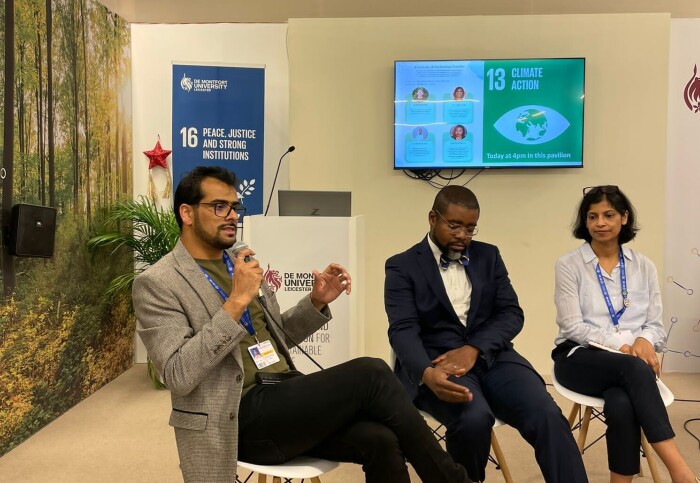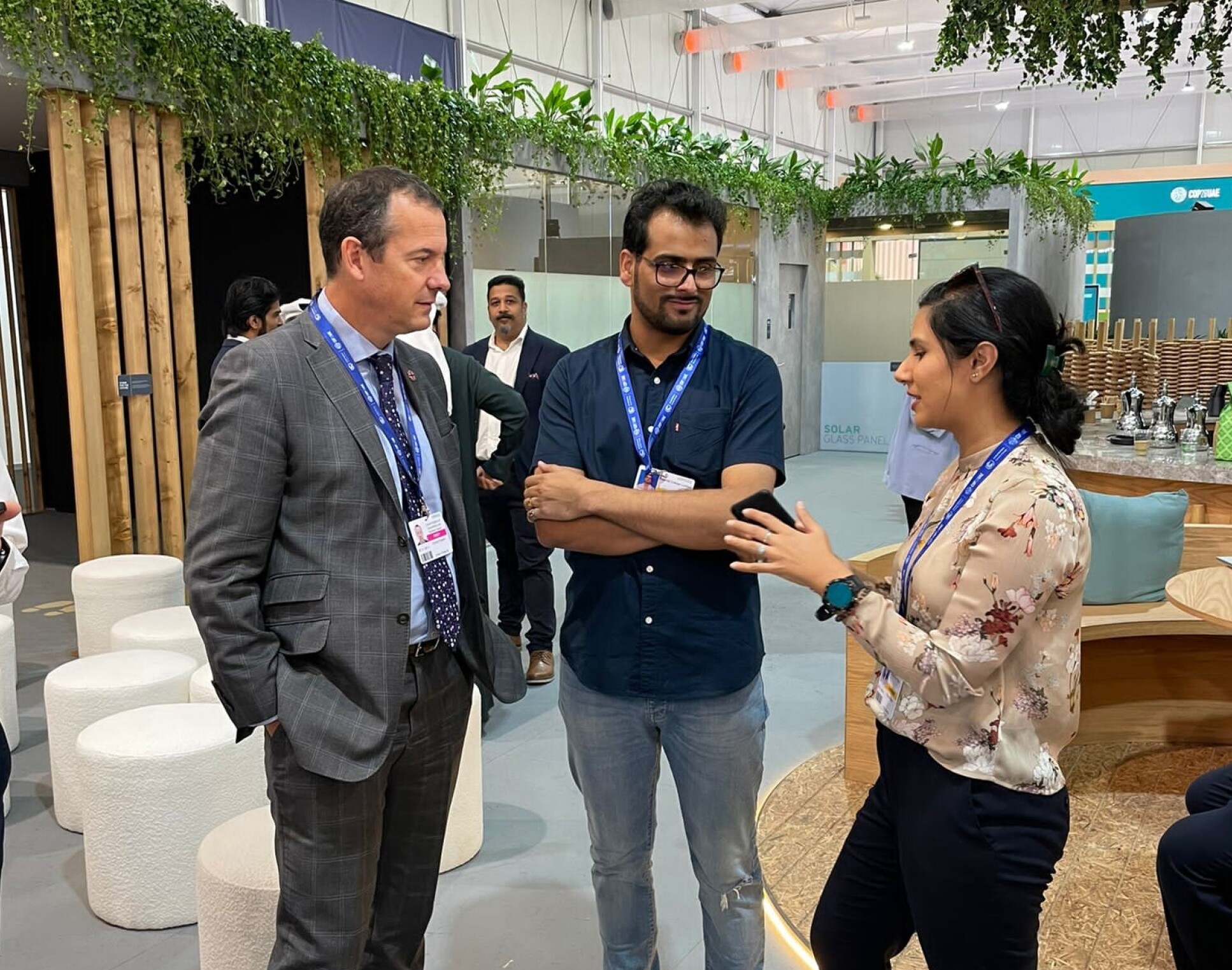Dr Mudasir Yatoo shares insights from COP28

Dr Mudasir Yatoo participated in COP28 as a representative of Imperial, supported by the UK Universities Climate Network COP Scholarship.
COP28 refers to the United Nations Climate Change Conference which took place in Dubai, United Arab Emirates, from 30 November to 12 December 2023.
Dr Yatoo was one of ten early career researchers sponsored by the UK Universities Climate Network COP Scholarships to attend the conference. His UNFCCC accreditation was also sponsored by Imperial College London.
During his visit, Dr Yatoo spoke on a panel event about ‘Climate Change Education’ and moderated a panel on ‘Technology Transfer’. In the article below, he shares more about his experiences at COP28.
How was your experience at COP28?
The COP series is arguably the most significant global conference where science and technology meet politics and public policy. I have been keenly following the outcomes of COP conferences but did not have the opportunity to attend and understand the COP process, so the experience of attending and contributing to COP28 has been eye-opening and inspiring, to say the least.
The opportunity to see how the basic ingredients feed into the major COP outcomes; for example how ‘fossil fuels’ finally found its way into the agreement text was almost like a fairytale, given scientists have been championing for it for quite some time now.
The experience has inspired me to develop a broad outlook of my research and look at sustainability from different perspectives - it will allow me to put ‘people’ rightly at the centre of my research work. Dr Mudasir Yatoo
How does your research support the transition to net zero emissions?
My expertise is solid oxide fuel cells, an electrochemical conversion device that produces electricity by utilising low-carbon/carbon-free fuels and, therefore, extremely relevant to our climate-stressed planet. The SOFC market is expected to grow from the present USD 1.4 billion to USD 5.4 billion by 2028.
At the moment, I am working on proton oxide conductors with a particular focus on exploiting these materials for hydrogen separation and compression devices – one of the major elements in building a hydrogen economy.
Did you learn anything new?
The main learning for me was to see and understand how themes such as ‘culture’ and ‘people’ are vital renewable resources to tackle climate change.
The experience has inspired me to develop a broad outlook of my research and look at sustainability from different perspectives including techno-economic, policy and cultural. This outlook will have a significant impact on my future research and career and will allow me to put ‘people’ rightly at the centre of my research work.

Article text (excluding photos or graphics) © Imperial College London.
Photos and graphics subject to third party copyright used with permission or © Imperial College London.
Reporter
Kayleigh Brewer
Department of Materials